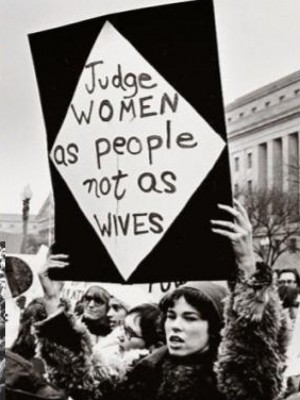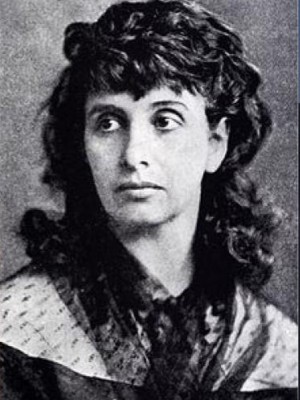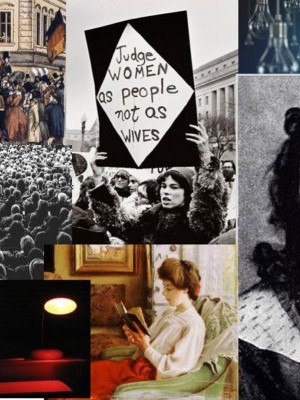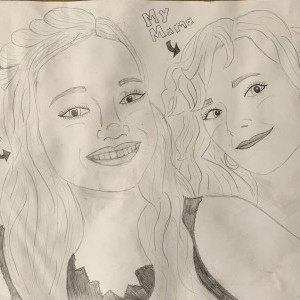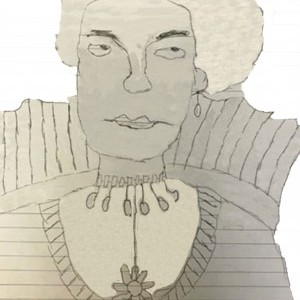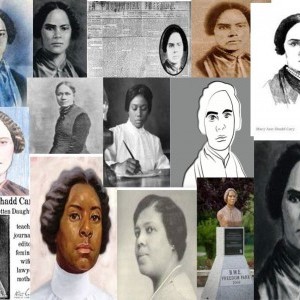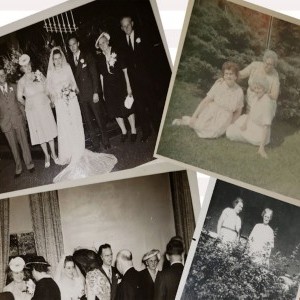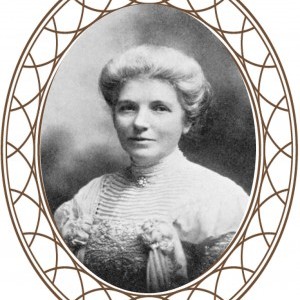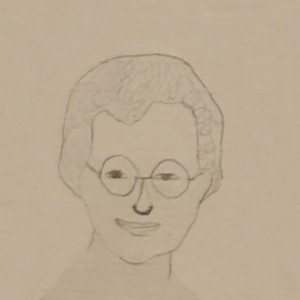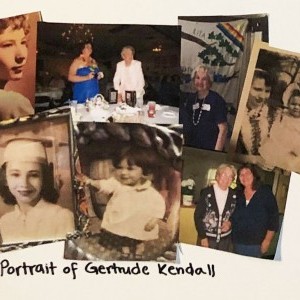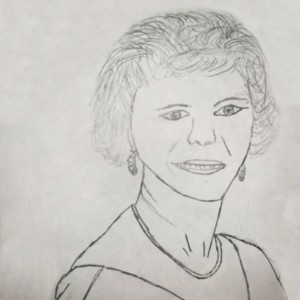Bianca Amoako
Rutherford B. Hayes High School | Delaware City, OH | 10th Grade
Inspirational Family Member
Alberta Hagaan
Britain has invaded all but 22 countries in its history. Gaining independence in 1957, the Republic of Ghana granted voting rights to men and women 18 and older. Alberta Hagan, born in Ghana in 1978, voted in the presidential election of 2000, for John Kufuor, who won the election. In 2003 she received a green card and moved to the United States. Soon after, Alberta gave birth to her daughter Melissa, but at that time Alberta could not vote in the States because she was not a citizen. Alberta did not meet the requirements to apply for citizenship, while her husband, Danso Amoako, was already a citizen of America. Both had moved to the States from Ghana, but at different times. The couple still had open discussions about important topics in American politics. It was hard for Alberta to come from Ghana, where she had recently voted for the Ghanaian president, to America, where she is not counted as a voting citizen.
America is a country of many freedoms and opportunities unrecognized by native-born citizens. For Alberta, growing up in Ghana was culturally different than in America. In today’s average American household, young women are encouraged to pursue their education, dreams, and focus on their own advancements. In contrast, Alberta was raised in a culture where the men were expected to make sure the bills were paid and the women were expected to clean the house and make sure dinner was on the table. Although, Alberta explained that there was no sense of inequality for women in Ghana. Women still got education and rights but roles in a household were preset. Alberta said, “In America there are no expectations. But in Ghana it’s 50-50. Men pay the bills and the women help around the house.” Sticking to her culture, Alberta raises her daughter to be helpful in the house, while also ensuring she is educated and knowledgeable about academics and world topics. Alberta shared that she would definitely vote if she was a citizen. Fortunately, her daughter is able to vote once she turns eighteen with no problem. Having conversations about politics helps Alberta feel like she is a part of the voting process, even though her green card is stopping her from going to the voting booth. She knows that her husband will make the right decision based off of their discussions that make her there in spirit.
Historical Figure I Admire
Hedwig Dohm
There is an infinite amount of things someone can do with 88 years of life. Born September 20, 1831, in Berlin, Germany, Hedwig Schleh was one of eighteen children. Child number eleven, Hedwig took care of her younger siblings while her parents worked. Her brothers continued their education, while she stayed home and read books. At age 22, Hedwig married Ernst Dohm, a Jewish journalist and a liberal. With much in common, Ernst supported Hedwig’s ideas and dream of becoming an author. Once her four kids were older, Hedwig decided to start her writing career.
Her first published piece of writing was in 1872, "What the Clergy Thinks About Women," where she responded to publications arguing that higher education would harm women mentally. Dohm wrote that women were in fact capable of higher education. Two years later, Dohm published a book about how women should be allowed advanced education and jobs in science and medical fields. Dohm started including reforms in her writings, like sex education for girls. From 1888 to 1901, Hedwig served on the board of the Verein Frauenwohl, loosely translating to the Society of Woman Welfare. In the 1980’s, Dohm started publishing novels about women’s journeys to self-awareness and self-liberation.
After the start of World War 1, Dohm wrote, "The Misuse of Death," which explained how governments failed to recognize the countless lives of their citizens. Dohm, deathly ill with influenza, published her last piece of writing, “On the Deathbed” in May of 1919. Continuing to criticize society, she described the war as the, “will to self-destruction” (“On the Deathbed”), because she did not support the effects of it on the citizens. Especially the women who had to take up the factory jobs temporarily for the men. Hedwig Dohm died from influenza June 1, 1919. Dohm was not stopped by the beliefs of her society and wrote her own opinions.
Hedwig Dohm was exposed to decades of preset gender roles from a young age. She wrote, “Courage and boldness are praised as a specifically male quality; timidity is one of the attributes of femininity” (The Nature and Rights of Women). The societal standards for women at this time were: raise children and be passive. To Dohm, it was unfair that men had to be the courageous ones. Dohm’s family demonstrated to her that women stayed in the house and were supposed to be domestic, not intelligent. Additionally, the Revolution of 1848, a period of revolts against European monarchies, was reason for frequent fighting between soldiers and citizens in Berlin. This taught Dohm that unhappy citizens protested to make change. They made the unfair, fair, by believing in their cause and expressing their beliefs. The social construct that women were not capable of complex thinking was unfair to Dohm. Also, Dohm was exposed to the brutal reality of a student’s death and violence. Experiencing this formed her beliefs of equality: equality has no gender, because violence doesn’t either.
Due to the abundance of violence, Hedwig Dohm peacefully protested by writing, allowing her to reach more people by publishing her pieces. Women’s equality was, and still is, important to females around the world because it is unjust to degrade someone on something they can’t choose, like gender and race. It was important she had supporters, like her family, because her ideas were constantly criticized, making it easy for her to lose ambition and confidence. She bluntly wrote that molds for women were constructed by men and do not, under any circumstances, have to be conformed to. She is an inspiration to all young girls, and women, but also young boys, and men because she promoted equality, for all, in an unorthodox way. During her lifetime, Dohm introduced men and women to new ideas of how we treat and view each other, that made them think of the way the world viewed women. For instance, a woman can be a doctor or scientist. Were women really incapable of the same things as men? Is there a place for women outside of a domestic role? Dohm encouraged people to fight for women’s suffrage, but continues to encourage people to fight for everyday liberties that can be stripped away. People from any social class, can make a change and create a rift in the perceived order of society. Hedwig Dohm made people question not only themselves, but their society.
What the Project Means to Me
When presented with the Women Leading the Way Project, I saw nothing special about it. To me, it was just another project where I researched a topic and regurgitated the information into gradable essays. I had never heard of most of the women on the list of 100 suffragettes. I had obviously heard of the major names on the list like Harriet Tubman and Mary Wollstonecraft. I decided to choose Hedwig Dohm because it is an interesting name and when I did the quick Google search on her, I found out that she was an author. If someone is an author or writer, it means they have some strong opinions.
What I found on Hedwig Dohm during the research phase, was actually quite inspiring. Unlike Harriet Tubman, who is famous for freeing slaves using the underground railroad, Hedwig Dohm was a typical woman living in the 19th century. She didn’t do any crazy escape plans with slaves, even though that is a courageous deed. Hedwig Dohm showed me that you didn’t have to do dangerous missions, or go out and protest until you got arrested. You can still support women’s rights and voting from anywhere around the world. You can simply write your thoughts and opinions. You don't have to be this superhero to make a change.
When I took this project to my step-mother, Alberta Hagaan, she opened my eyes to how close voting issues are. She is a intelligent woman but is not able to vote. Neither was Hedwig Dohm, but they both opened people’s eyes to problems in society because they are educated. Prior to this project, my view of voting was very black and white: the only elections that people have a real say in are the small ones. We don't actually get to vote for the president, the Electoral College does. But voting still matters. We get the privilege to vote for our country’s issues. We are a part of the solution and that is what’s important. As long as we are participating and getting involved, our vote matters.
Explore the Archive
More From This Class
Click on the thumbnails below to view each student's work.Deadline Extended
There's still time to join Women Leading the Way.
Become a part of our storytelling archive. Enroll your class today.
Join the Project

